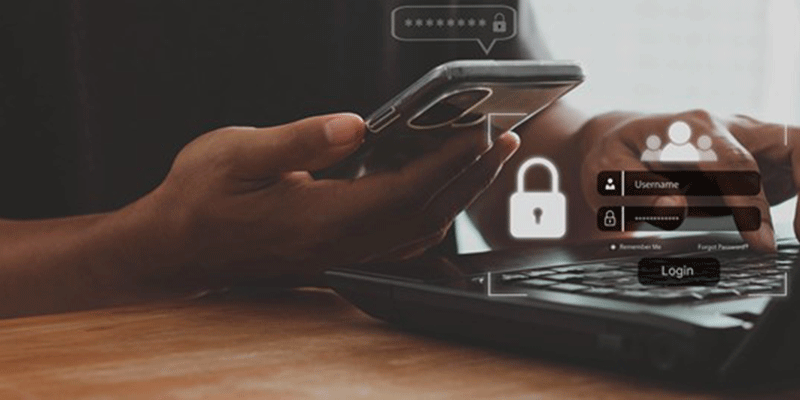In today’s digital age, the internet is a big part of our lives. For secondary school students, the internet offers countless opportunities for learning, socialising, and entertainment. However, it also comes with risks that can threaten your privacy and safety, so understanding these risks and learning how to protect yourself is essential. This article will explore the dangers of being online and provide practical tips to help you stay safe and smart online.
The Dangers of Being Online
1. Cyberbullying
Cyberbullying involves the use of technology, such as social media, messaging apps, or gaming platforms, to harass, threaten, or embarrass someone. It can cause emotional distress, lower self-esteem, and affect mental health. Recognizing cyberbullying and knowing how to respond is crucial to maintaining your well-being.
2. Phishing Scams
Phishing scams are fraudulent attempts to obtain sensitive information, such as usernames, passwords, or credit card details, by disguising as trustworthy entities in emails or messages. Falling for these scams can lead to identity theft or financial loss.
3. Inappropriate Content
The internet has vast amounts of information, but not all of it is suitable for everyone. Exposure to violent, explicit, or disturbing content can happen accidentally or deliberately, and it can negatively impact your mental health.
4. Online Predators
Some individuals use the anonymity of the internet to deceive young people and develop
relationships with them. These online predators often target unsuspecting teenagers to
exploit or manipulate them.
5. Data Theft and Identity Theft
Personal information shared online, whether on social media, through email, or even during online shopping, can be stolen and used for malicious purposes. Identity theft can
lead to unauthorized financial transactions or misuse of your identity in illegal activities.
How to Stay Safe Online
1. Be Careful About What You Share
Think before you post. Avoid sharing personal information like your full name, address,
phone number, or school details on social media or in online profiles. Remember, once
something is online, it can be difficult or even impossible to remove it completely.
2. Create Strong, Unique Passwords
A strong password is your first line of defence against hackers. Make sure to use a
combination of letters, numbers, and symbols, and avoid using easily guessable
information like your birthdate or pet’s name. Use a different password for each account
to minimize risks.
3. Enable Two-Factor Authentication (2FA)
Two-factor authentication adds an extra layer of security by requiring two forms of
identification before granting access to your accounts. This could be a password and a
code sent to your phone or an email verification.
4. Know Who You’re Talking To
Be cautious when interacting with people you don’t know in real life. Avoid sharing
personal information with strangers, and remember that people aren’t always who they
claim to be online. If someone makes you uncomfortable, stop communicating with them
immediately and consider reporting them.
5. Be Skeptical of Unsolicited Messages
Phishing scams often come in the form of unsolicited emails or messages that appear to
be from legitimate organizations. Be wary of any message that asks for personal
information or directs you to a website. Always double-check the sender’s details and
avoid clicking on suspicious links.
6. Adjust Privacy Settings
Review and adjust your privacy settings on social media and other online platforms.
Make sure your profile is private, so only friends and trusted contacts can see your
information. Regularly check these settings, as platforms may update them without
notice.
7. Think Before You Click
Not all links are safe. Avoid clicking on links from unknown sources, especially in emails
or pop-up ads. These could lead to phishing sites or contain malware. Hover over a link
to see where it leads before clicking on it.
8. Use Secure Networks
Avoid using public Wi-Fi networks for sensitive activities, such as online banking or
accessing personal accounts. If you must use public Wi-Fi, consider using a Virtual
Private Network (VPN) to encrypt your internet traffic and protect your data.
9. Keep Software and Apps Updated
Regularly update your devices, software, and apps to protect against the latest security
threats. Most updates include patches for security vulnerabilities that hackers could
exploit.
10. Know What to Do If Something Goes Wrong
If you suspect your account has been compromised, change your passwords
immediately and contact the service provider for further assistance. If you are a victim of
cyberbullying or feel threatened online, tell a trusted adult, such as a parent, teacher, or
school counsellor.
The internet is a powerful tool for learning, connecting, and exploring the world, but it’s
important to stay aware of its risks. By following these tips and being mindful of your online
behaviour, you can enjoy the benefits of the digital world while staying safe and secure.
Remember, your digital privacy is your responsibility — stay smart, stay safe, and protect
yourself online.
